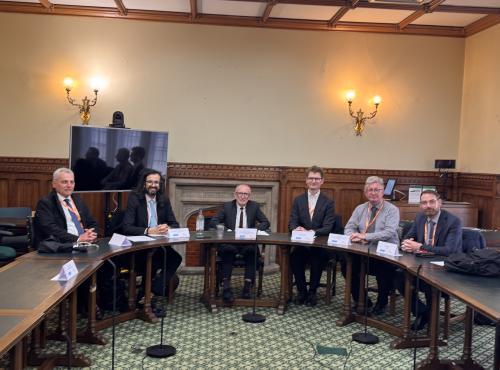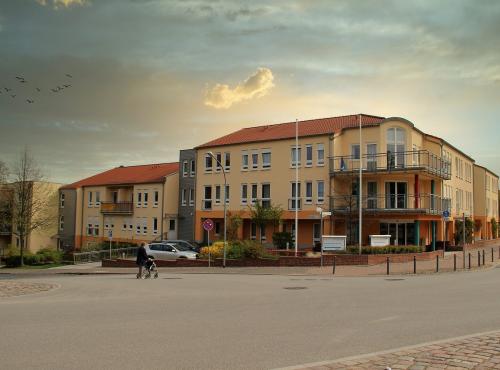10 Years of Action: The All-Party Parliamentary Carbon Monoxide Group’s Anniversary
As 2022 draws to a close, Policy Connect celebrates ten years since the formation of the All-Party Parliamentary Carbon Monoxide Group.
Policy Project Coordinator Kevin Herron reflects on some of the group’s key achievements promoting and expanding carbon monoxide safety.
2012 – APPCOG renamed from APPG for Gas Safety
The All-Party Parliamentary Gas Safety Group (APPGSG) changed its name to the All-Party Parliamentary Carbon Monoxide Group (APPCOG) in 2012. The APPGSG was originally established to promote awareness of carbon monoxide (CO) poisoning and provide a forum for parliamentarians, industry, charities, emergency services, and other interested stakeholders, to collaborate and discuss ways of improving gas safety. Given that CO can be produced by a variety of fuels, such as oil and wood, not just gas, the APPG opted to change its name to better reflect its focus.
2013 – Report: Preventing Carbon Monoxide Poisoning
In May 2011, the APPGSG (soon to be APPCOG) conducted a six-month inquiry into CO poisoning, led by APPG co-chair Baroness Finlay of Llandaff. Around 4,000 people are diagnosed with CO poisoning by A&E departments every year, however this number is widely thought to be the tip of the iceberg due to lack of awareness and the difficulties associated with diagnosing CO poisoning. ‘Preventing Carbon Monoxide Poisoning’ was published in 2012 and made 17 recommendations focussed on better use of the detection and diagnosis equipment, opportunities for raising awareness and changes to the regulatory regime of the fossil fuel industry. The recommendation for “all rented properties to be fitted with an audible carbon monoxide alarm” came into effect this year.
2015 – Carbon Monoxide: From Awareness to Action
In 2015, the APPCOG published a 92-page inquiry report, ‘Carbon Monoxide: From Awareness to Action’. The report called on government and industry to adopt key behavioural science techniques that have proven successful in motivating action from the public in other public policy areas. The report made over twenty recommendations, including the introduction of a boiler replacement scheme, the creation of an ‘Innovation Standard’ for CO alarms and that all recreation parks should offer suitable CO alarms for purchase and/or loan. In another policy win, the government’s recent Boiler Upgrade Scheme (BUS) which will be administered by the Office for Gas and Electricity Markets (Ofgem), has committed £450 million of grant funding to help households replace gas boilers with new heating systems and support decarbonisation from 2022 – 2025.
2017 – Tenants Safe and Secure in their Homes & Saving Lives, Advancing Treatment
In 2017, the APPCOG published its report, ‘Carbon Monoxide Alarms: Tenants Safe and Secure in their Homes’. This report looked at issues around improving regulations of CO alarms in rented properties. The report came at a significant time, following the tragic Grenfell Tower fire on 14 June 2017, which highlighted the gaps in the health and safety framework that is supposed to protect tenants. The report compiled inputs from key stakeholders and experts, providing the evidence needed to amend the 2015 ‘Smoke and Carbon Monoxide Alarm regulations’ to cover all fuel-burning appliances in the social and private rental sector. It has been wonderful to see these recommendations brought to life with the introduction of new requirements for carbon monoxide alarms in rented homes in 2022 (more below).
2019 – Ofgem update Vulnerability Strategy
In October 2019, Ofgem updated its Consumer Vulnerability Strategy. The update included many of the APPCOG’s recommendations. It included increasing the volume of data relating to vulnerable customers that is shared between utility companies, and establishing an agreement to increase engagement with the Department for Business, Energy and Industrial Strategy (BEIS) to ensure Ofgem’s strategy is harmonised with broader government social policy.
2020 – VCMA fund doubled to £60million
The APPCOG was delighted at Ofgem’s decision to double the Vulnerability to Carbon Monoxide Allowance from £30 million to £60 million. A quarter of the funding is ring-fenced for collaborative work between the Gas Distribution Networks (GDNs) with the remainder split proportionately between each GDN to reflect the number of homes they serve. This decision followed shortly after a meeting APPCOG held with Ofgem, Barry Sheerman MP and a survivor of CO poisoning. The APPCOG is delighted that Ofgem recognised the need to increase CO safety; the fund has initiated a wide range of excellent projects and campaigns which will deliver lasting benefits to communities and vulnerable individuals.
2021 – eBay UK agree to ban black spot CO detectors
Following contact from the APPCOG, eBay reviewed and removed the sale or advertisement of black spot CO detectors from their site. This decision will protect more people from CO poisoning and was particularly important given that the requirement for CO alarms has since expanded. It is essential that landlords install alarms with an audible or alerting indication in order to keep their tenants safe, which these dangerous black spot detectors do not. eBay's actions have helped to protect people from the false sense of security these products give.
2022 – Regulations for domestic CO alarms made law
2022 was an important an exciting year for CO safety. The APPCOG was delighted to see the expansion of CO alarm regulations across the UK’s four nations. In all, the new regulations require millions of households to have CO alarms and will subsequently protect many more people from the deadly effects of CO poisoning. The expansion of regulations for CO alarms in rented properties has been a key recommendation and priority of the APPCOG for many years; and this victory is a fitting way to round off the group’s first decade.
However, there is still much work to do. For example, the Smoke and Carbon Monoxide Alarm (Amendment) Regulations 2022 covering England excludes gas cookers, and does not apply to owner occupied homes or other buildings such as workplaces and schools.
The APPCOG will continue to build the case for further action on CO safety and to protect the public from the dangerous impacts of this poisonous gas.
For further updates on the APPCOG’s work, please follow us on Twitter @APPCOG_UK.




